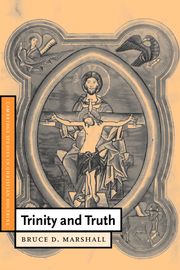
- Cited by 4
-
Cited byCrossref Citations
This Book has been cited by the following publications. This list is generated based on data provided by Crossref.
McMartin, Jason 2013. Analytic Philosophy and Christian Theology. Religion Compass, Vol. 7, Issue. 9, p. 361.
2017. Wahrheit bei Wolfhart Pannenberg. p. 815.
Morris-Chapman, Daniel Pratt 2023. Crossing the Threshold to Eternity: The Legacy of William James Abraham (1947–2021). Holiness, Vol. 8, Issue. 1, p. 2.
McGuire, Seán 2024. Practicing truth, in silence: reflecting on the use of non-disclosure agreements in North American ecclesial contexts. Practical Theology, Vol. 17, Issue. 1, p. 27.
- Publisher:
- Cambridge University Press
- Online publication date:
- December 2009
- Print publication year:
- 1999
- Online ISBN:
- 9780511612169
- Subjects:
- Philosophy: General Interest, Religion, Philosophy, Theology
- Series:
- Cambridge Studies in Christian Doctrine (3)




